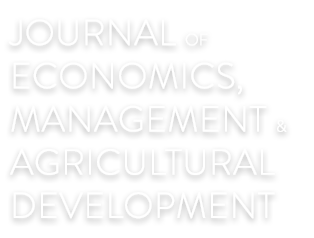Authors
ABSTRACT
The study was conducted to characterize farm mechanization and determine its economic effects on rice production, income and employment. Ninety rice farmers were randomly selected and classified into three types: high, intermediate, and low-mechanized farms. The results of the study show that highly mechanized farms commonly own pumps, hand tractors, power tillers, and threshers while low mechanized farms tend to rent out their farm operations. The mean horsepower values tend to be higher in land preparation and threshing. The higher the level of mechanization, the higher the output and income per hectare: highly-mechanized farms with PhP 40,446; intermediate farms with PhP36,936; and low-mechanized farms, PhP 19,965. The study also reveals that farm mechanization has a negative effect on farm labor employment. Highly mechanized farms employ the lowest number of farm labor in man-days but employ the highest number of labor on post-production activity, specifically threshing.

